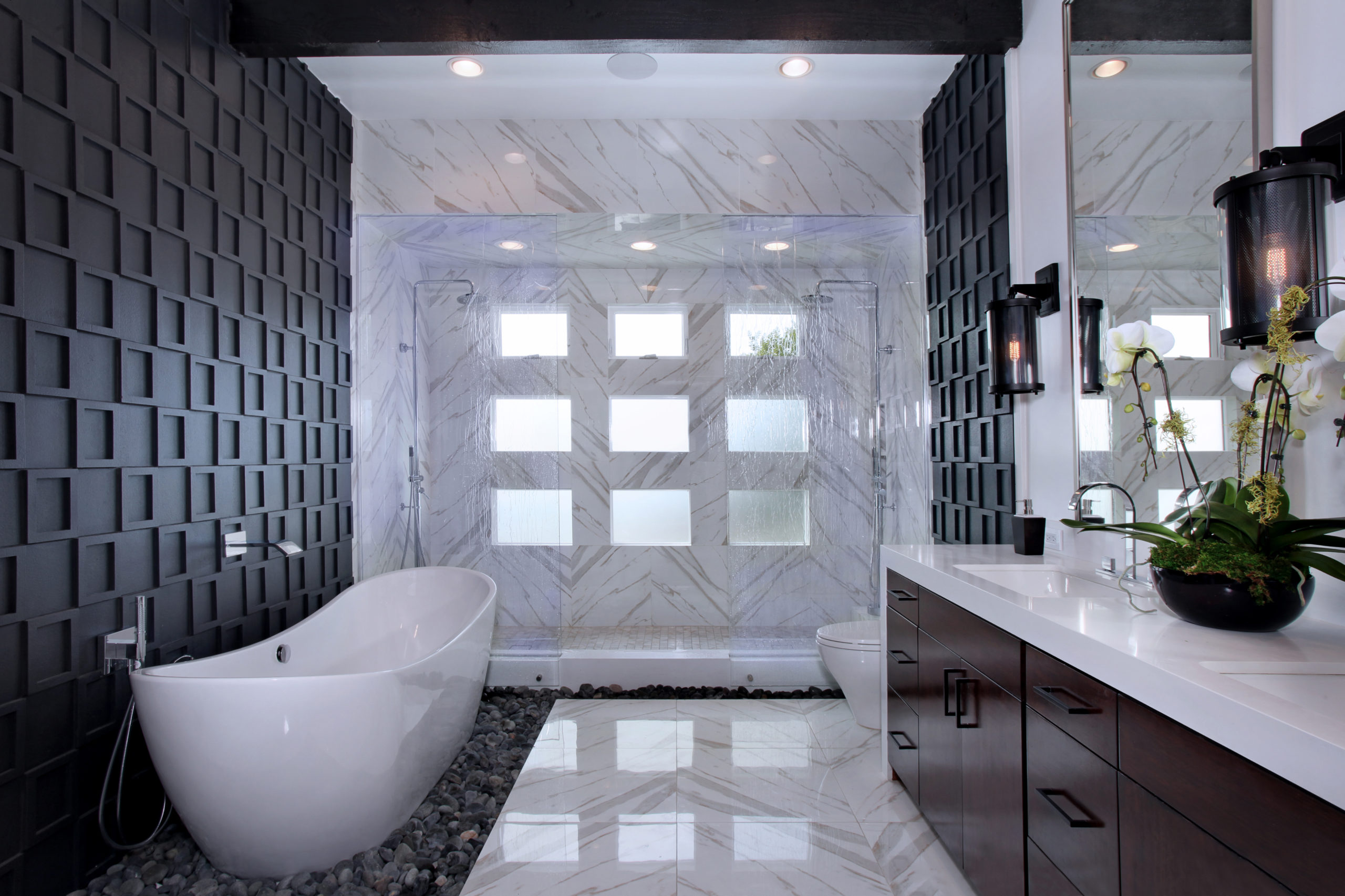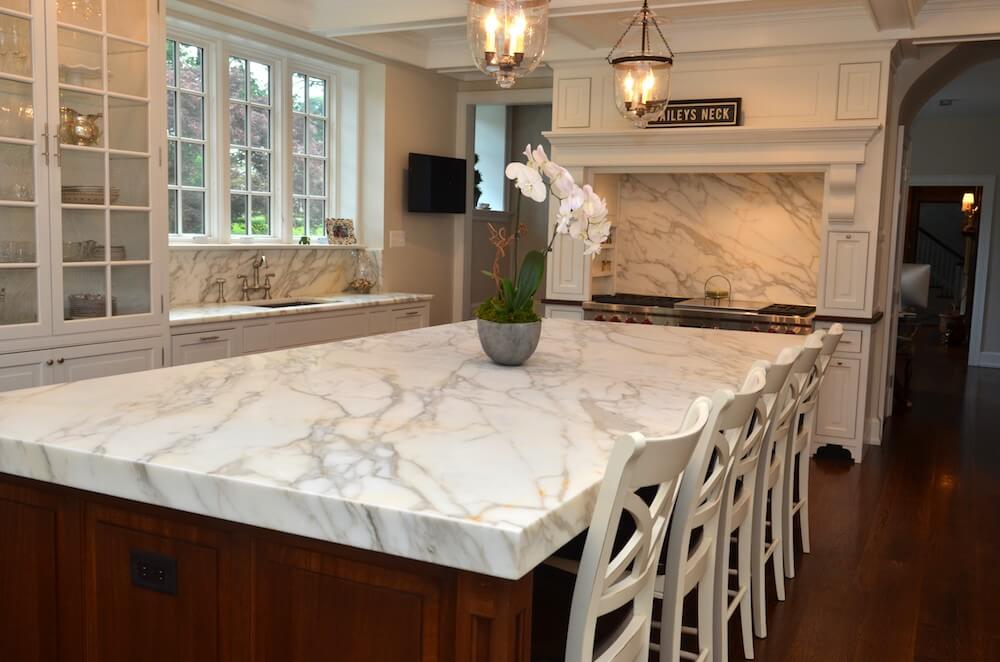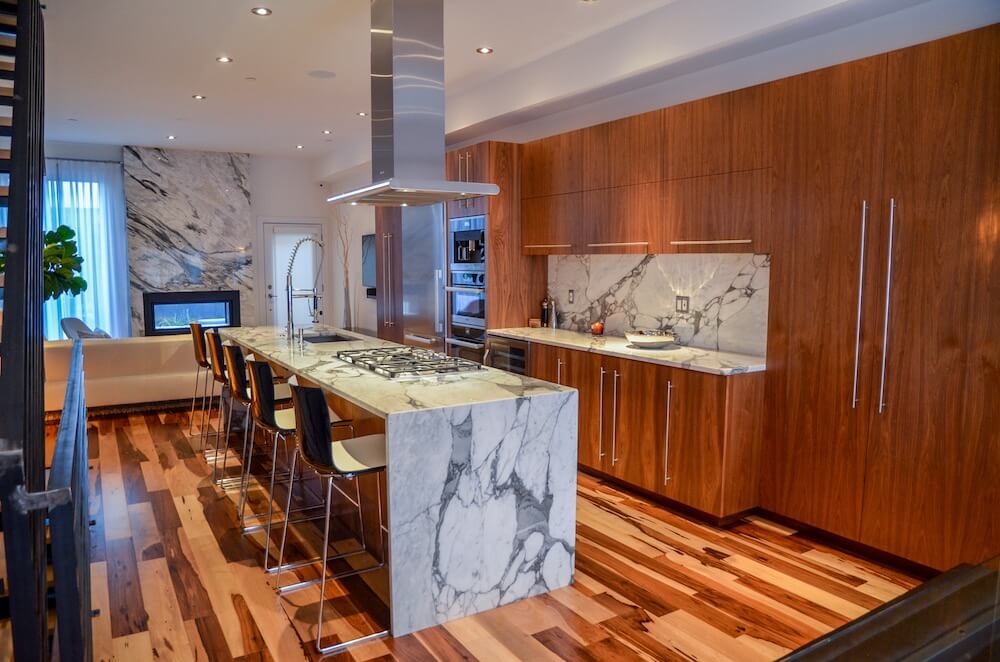Since the ancient Greeks — and perhaps beyond — marble has been valued and adored because of its beauty and strength. From the revered Parthenon in Athens to the treasured sculptures of Michelangelo, marble has become synonymous with elegance, style, and sophistication.
And while marble can only be created through the persistent and uncompromising elements of pressure, heat, and time, it remains, all at once, strong, durable, and unyielding — yet delicate, refined, and exquisite.
The journey from quarry to kitchen can be long and arduous, but in the end, it’s always worth it. Marble countertops add a certain and undeniable panache to any space they adorn, but these living pieces of art need a bit of care and preventative maintenance to look their absolute best. From regular resealing to removing stains from your marble, it’s essential to understand how to properly care for this cherished natural stone. Let’s take a look at what marble countertop etching is, some ways to treat it, and how to prevent it.
What Does It Mean When a Marble Countertop Etches?
Before understanding how to treat and prevent etching on your marble countertop, it’s important to know how it happens. Etching on your marble countertop refers to the physical damage that occurs on the surface of the stone. It’s caused by a corrosive reaction when acidic substances like citrus, wine, coffee, tomatoes, alcohol, or juice come into contact with your marble countertop. These liquids actually eat away at the surface layer, revealing the raw stone beneath and leaving your marble countertop looking noticeably lighter and duller.
How Can You Tell If a Marble Countertop Is Etched?
It’s important to note that, while they can both cause discoloration on your marble countertop, staining and etching are not the same thing. Remember — marble is a natural stone, and similar to a sponge, it can be porous. Staining refers to liquid spills being absorbed through these pores into the stone; the discoloration is caused by the particles seeping into the marble and eventually getting trapped beneath the surface.
On the other hand, etching on your marble countertop can happen almost instantaneously — within mere seconds — and is caused by corrosion to the surface of the stone by acidic substances. In the case of etching, the surface is eroded, leaving behind a light or white spot.
How Do You Tell the Difference Between a Marble Stain and an Etch?
One simple way to distinguish a stain from etching on your marble countertop is by the color. Typically, if the affected area is darker than the rest of the stone, it’s a stain. If the affected area is lighter than the rest of your marble countertop’s natural color, it’s an etching. Additionally, especially severe etching on marble countertops can result in the surface feeling slightly rough to the touch and even abrasive, especially on stones with a polished finish.
Can Etching Be Removed From Marble Countertops?
Some homeowners like the “lived-in” look of etched marble, believing it adds to the uniqueness of the stone and gives it personality. However, if you prefer your countertop to remain as pristine as possible, the good news is yes — many minor etch marks can be removed from your marble countertop with a bit of TLC and elbow grease.
What’s the Best Way to Remove the Etching From My Marble Countertop?
When it comes to removing etching from your marble countertop, you can simply use a clean rag or towel, a spray bottle, and some marble polishing powder. First, ensure the area above the etch mark is clean, then cover the entire mark with the polishing powder. Using the spray bottle, mist water on the powder; then, take a moist towel and vigorously rub it in for 20 to 60 seconds. If the etch mark is still visible on your marble countertop, thoroughly clean and dry the stone and perform the process again.
Keep in mind this method is best for small etching spots on polished marble countertops. For removing etching on honed marble countertops — or for treating etch marks over a large area — it’s best to call in the professionals at Colonial Marble & Granite. We can help remove etching marks on your marble countertop and breathe new life into this majestic natural stone.
How Can I Prevent Etching From My Marble Countertop?
One of the easiest ways to prevent etching on your marble countertop is by considering the finish. For instance, a honed marble countertop will show etching marks much less than its polished counterpart. However, the true way to 100% keep your stone from etching is to prevent acidic liquids and caustic cleaners from coming into contact with the surface of your marble countertop.
While altogether precluding the use of any acidic substances on or around your countertop may be a bit challenging, especially for busy families on the go, there’s another method to help prevent etching on your marble countertop — ensuring it’s properly sealed. This can expand the lifespan of the stone, safeguard it from etch marks, and keep it looking brand new.
How Do I Know When It’s Time to Reseal My Marble Countertop?
If you’re wondering when’s the best time to reseal your marble countertop, a good rule of thumb is to apply a sealant every three to six months. Additionally, if you’re not sure, you can perform a water test. Simply pour a small amount of water onto various sections of your marble countertop and let it sit for 30 minutes. Observe any changes that take place during this time; if the color darkens quickly before the time is up, it likely means it’s time to reseal. Regularly applying a coat of marble sealant will help protect it from stains, etching, and dullness.
Continue Your Countertop’s Journey With Colonial Marble & Granite
While some homeowners actually prefer etching on their marble countertops — as it can add to the character of the stone, helping to tell their family’s story for years and generations to come — others would rather keep their stone uniform and unblemished. Regardless of your preference, our team is always here to help you continue your countertop’s journey. Whether it’s through our resealing services or by complementing your marble countertop with a dazzling tile backsplash or stunning cabinetry, our teams of fabricators and designers are standing by, ready to help.
For more information on how you can make the most out of your marble countertop, reach out for an in-home design consultation today or visit one of our locations to see everything we have to offer in person.





